South African government is not morally fit to accuse Israel of genocide
With the world’s attention on South Africa’s case at the United Nations’ International Court of Justice it’s legitimate to ask: If South Africa is concerned about genocide in the Middle East, why is it not concerned about genocide, murders and deaths in its own and neighbouring countries?
Below we highlight the plight of South Africans and Zimbabweans which, while raising a case of genocide in Palestine, the South African government is ignoring or, worse still, aiding and abetting. These are in addition to covid crimes against humanity perpetrated by the South African government on its own people.
Although you may feel like praising the South African government, spare a thought for its many victims.
Let’s not lose touch…Your Government and Big Tech are actively trying to censor the information reported by The Exposé to serve their own needs. Subscribe now to make sure you receive the latest uncensored news in your inbox…
Thousands are Dying in Zimbabwe
“Whilst the African continent and decent people across the world are celebrating the court ruling in the case brought by South Africa against Israel, the same decent people must ask themselves why it is not important for the same South African government to stop the silent deaths of thousands of Zimbabweans dying due to the Zimbabwean political crisis which it openly supports and defends both privately and publicly.” – Hopewell Chin’ono
Hopewell Chin’ono is a Zimbabwean award-winning documentary filmmaker and international journalist who has been persecuted by the state for speaking out against state corruption and tyranny. The following is a copy of a tweet he posted on 27 January 2024.
I would like to congratulate the South African government and the brilliant legal team that argued the case against the brutal killing of defenceless Palestinians.
Leadership requires to take unpopular yet correct decisions to protect the defenceless. Taking on Israel is not an easy task in a world where such a decision carries severe economic consequences.
It must be made clear that what was on trial is Israel and NOT the Jewish people.
This decision was important to save innocent lives, that is why it surprises many that the same South African government ignores the loss of life due to violent corrupt rule in Zimbabwe, literally its own backyard.
2,500 Zimbabwean pregnant women die every year giving birth in Zimbabwe because of the political crisis authored by ZANU-PF’s corrupt rule. That is the equivalent of 15 jumbo jets crashing every year and killing everyone on board.
Yet South Africa’s ruling party publicly declares support for ZANU-PF. Not only that, the economic burden falls on South Africa for those who survive because 75% of women giving birth at South Africa’s Musina Hospital in Limpopo are Zimbabwean.
If South Africa applied the same moral compass that it correctly used on the genocide in the Gaza Strip in Palestine, these women wouldn’t be dying and the South African taxpayer wouldn’t be carrying the financial burden.
Is the dying of 2,500 pregnant Zimbabwean women every year not a human rights issue worth pursuing for the South African government?
Is the burden of the Zim political crisis on South Africa’s maternity theatres not an urgent issue worth addressing for the SA government?
Thousands of Zimbabweans die every year from treatable cancer because Zim doesn’t have a single working radiotherapy cancer treatment machine, something that costs only US$1 million to buy.
Those who can cross the Limpopo River end up getting cancer treatment in South Africa.
This is not only a humanitarian disaster, it is also a silent genocide, not only that, but it also burdens the South African taxpayer because South African hospitals have to treat Zimbabweans who seek cancer treatment.
All this is caused by policies authored by the ANC’s kindred soulmate, ZANU-PF.
One would ask, are lives elsewhere more important for the South African government than next door in Zimbabwe?
Every life matters!
Does the South African government only respond when people are killed by bombs and guns and not by failed policies that end up with the biggest hospital in Zimbabwe having only ONE maternity theatre built in 1977 by Ian Smith’s government?
It costs only US$37,000 or R703,000 to build a maternity theatre, ONE Landcruiser can build 11 maternity theatres in Zimbabwe, yet the Zimbabwean government has thousands of these cars in service.
What amazes those of us who deal with the daily pain of losing relatives in Zimbabwe is that the South African government through its President and the ANC is an active defender of the Zimbabwean regime and its disastrous policies.
Is the life of the black African in Zimbabwe less important to the ANC and the South African government than elsewhere?
Jamaicans have a proverb that says: “Yuh fi dance a yard before yuh dance abroad,” loosely translated it says dance at home before you go to dance abroad.
The proverb emphasises the importance of addressing local issues or challenges before venturing into broader or international matters. It suggests a focus on addressing internal concerns before engaging with external affairs.
The Zimbabwean government has created an illegal immigration crisis in South Africa such that single-issue political parties have been formed in South Africa and are winning seats in elections. Put differently, Zimbabwe is no longer just a foreign policy issue for South Africa, it is now a domestic issue.
Please do for Zimbabweans what you correctly did for the Palestinians.
Dance a yard before yuh dance abroad, consistent application of moral principles is an important attribute.
South African Farm Attacks and Murders
Is a crime against humanity at risk of unfolding in South Africa? Elon Musk, the Pretoria-born billionaire who owns X (Twitter) and Tesla, fears that there might be. Last year, he wrote that he’d heard of calls for “a genocide of white people” in his former homeland.
Musk isn’t alone in his concerns. Steve Hofmeyr, a South African singer with a cult following, thinks that the “g-word” is an appropriate way to describe what is unfolding: “If you think that the slaughter of South African farmers is not genocide enough, ask them about their land, language, religion, education, universities, heritage, monuments, safety, dignity and the race-based regulations imposed upon them and their children.”
Donald Trump voiced a similar concern when he was in the White House. In a tweet that caused a diplomatic bust-up between South Africa and the United States in 2018, Trump referred to the “large-scale killing of farmers.” The government in Pretoria labelled his claim ridiculous, but was Trump right about what is unfolding?
Logging as many as 450 murders in a week, South Africa has the third-highest murder rate in the world, well ahead of Colombia and Mexico.
The Democratic Alliance (“DA”) is the official opposition with the second-most seats in parliament after the ruling African National Congress (“ANC”). DA shadow minister for Agriculture, Land Reform and Rural Development, Phineas Masipa, agrees with Genocide Watch’s Dr. Gregory Stanton that “for all the tragedy of farm murders in South Africa, there is no evidence of a planned extermination.”
However, Masipa says there needs to be an investigation into all rural deaths, including farmers and the black workers and security guards often attacked by the same gangs.
“No matter how we label this, a perception that farmers and their staff are not safe could deter the next generation of growers,” Mapisa said. “This raises a concern around food security on a continent vulnerable to hunger.”
Staunton said it was a situation the United Nations and human rights groups should be watching closely. But, all too often, the response of such organisations is simply silence. Meanwhile, there’s no sign that the rate at which South Africans are being murdered – some white, but overwhelmingly black – will slow anytime soon.
Read more: What’s the truth about South Africa’s ‘genocide’ of white farmers? The Spectator, 29 December 2023
The South African farm murders (Afrikaans: plaasmoorde) are violent crimes, including murder, torture, rape, assault and robbery, that take place on farms in South Africa. The attacks target both white and black farmers. They are not a recent development. In 2010, Andre Botha of the agricultural union Agri SA stated that there have been 11,785 attacks and 1,804 murders since 1991 – a rate of two farm murders a week.
Many farm owners believe that the attacks are racially motivated and intended to drive white farmers out of commercial farmlands.
According to Wikipedia, the South African government set a target of transferring 30% of productive farmland to “previously disadvantaged” black people by 2014. The land reform was criticised both by farmers’ groups and by landless workers, the latter alleging that the pace of change has not been fast enough, and the former alleging racist treatment and expressing concerns that a similar disastrous situation to Zimbabwe’s land grab policy may develop.
Related: Farmer Bill and his wife, the private owners of more farmland than anyone else in America
In 2014, in the latest twist on the scramble for land in Africa which had seen foreign countries buying up huge areas of land in the hope of securing food supplies, the Republic of Congo planned to give away vast tracts of land to South African farmers in the hope they will be able to grow enough food to feed the country.
The Telegraph explained that South African farmers were considering this and other such deals because they felt under pressure from the ANC that their land was going to be taken and redistributed, adding:
Pretoria has so far operated a ‘willing buyer, willing seller’ approach and is adamant there will be no repetition of the chaos in Zimbabwe, but [Theo de Jager, deputy president of Agri-SA] said negotiations are under way with 16 other African countries to secure similar deals [to the Republic of Congo].
Congo hands land to South African farmers, The Telegraph, 21 October 2009
The Government of South Africa and other analysts maintain that farm attacks are part of a broader crime problem in South Africa and do not have a racial motivation; the Afrikaans non-governmental organisation Afriforum, as well as the political party Freedom Front Plus (FF+), have disputed this.
The South African Police Service (“SAPS”) stopped releasing homicide statistics on farm murders in 2007 instead merging them with all homicide figures, this has increased the difficulty of accessing reliable statistics with most studies since relying on data from the Transvaal Agricultural Union of South Africa (“TAUSA” or “TAU”) instead.
According to TAU, the 2009/2019 decade saw an increase of 86% in farm and rural attacks and murders compared to 1990/1999.
In 2017, South African farmers constituted statistically the most vulnerable population group in the world. They were three times more likely to be killed than a policeman in a country that has one of the highest murder rates in the world.
In 2018, Queensland senator Fraser Anning described the attacks on South African farmers as “the start of a genocide” and that it was state-supported genocide.
“This is the start of a genocide as far as I’m concerned, and it’s only going to get worse because the genocide has just started,” he said.
“Anyone who would boil a child in a bath, rape his mother and slaughter people the way they are slaughtering them now are subhuman.”
The Mail & Guardian reported that South Africa has a low rate of arrests and convictions in farm attack and murder cases despite a national police policy to fight crime in rural areas.
According to a report by AfriForum, which analysed 1,402 farm attacks and murder incidents recorded by the South African Police Service (“SAPS”) from 2019 to 2022, there were convictions in just 66 cases, which means that more than 95% of these violent crimes remain unsolved.
“The results indicate that the arrest and conviction rate for both farm murders and attacks are low. The low arrest rate for attacks (22%) and murders (49%) is of particular concern,” the report found.
In December 2020, the European Parliament passed a resolution urging the member states to openly admit that these brutal attacks are racially driven and to support the plight of people of European descent who have lived in South Africa for generations, and in particular that of South African farmers.
The resolution also urged EU member states to put pressure on the South African government to prioritise tackling these crimes and to prosecute those who directly or indirectly call for the murder of farmers and white South Africans.
In August 2023, the DA published an article demanding an investigation into farm murders. “The DA is deeply concerned about the sharp rise in farm murders in South Africa and the dangerous rhetoric inciting violence against a particular group in society. The ANC’s failure to address the inflammatory statements and farm attacks shows a lack of leadership in protecting citizens,” the DA wrote.
“The DA urgently calls for the establishment of a commission of inquiry to investigate the link between incitement and farm attacks and demands decisive leadership from President Cyril Ramaphosa to address the crisis.”
In another article published the same month, the DA said South Africa’s President Cyril Ramaphosa was ignoring their formal request to establish a Commission of Inquiry into farm attacks and murders.
Since submission of the request, 16 farm murders have been registered between May and July 2023, representing a 56% increase.
With rising unemployment and many South Africans going to bed hungry, the Presidency should be very concerned about this critical sector and doing everything in his power to protect the farmers and farm workers.
68 days and counting – Ramaphosa still refuses to take action on farm murders, DA, 15 August 2023
The following month, the continuing attacks – and murders – of farmers and their workers came under the spotlight in the South African National Assembly. Masipa told the house her party “had already” approached South African President Cyril Ramaphosa “urging” him to set up a commission of inquiry into farm murders and related crimes.”
Masipa expressed hope the ad hoc committee would be the predecessor to a fully-fledged commission of inquiry that “will chart the way forward for safer farming communities.”
Another DA public representative, Brandon Golding, who sits on the Police Portfolio Committee as an additional member, also raised the food security issue calling the “ongoing scourge of farm attacks a blight on the [South African] nation.”
Read more: South Africa farm attacks on Defence Web and South Africa farm murders on The South African
In the video below, Real History with Melissa explores the question: Are the farm murders in South Africa a globalists’ ploy to get rid of farmers?
Melissa and South African commentor Darin cover South Africa’s high unemployment, farm murders, ANC corruption, power outages, water shortages, water treatment and cholera, the train system nearly destroyed, the World Economic Forum and more. There is a comprehensive list of resources noted in the description below the video on BitChute and on Rumble.
A timestamp 12:18, the discussion turns to crime in South Africa, beginning with the farm murders.
“[South Africa is] the murder and rape capital of the world,” Darin said. “And we’ve got the most unbelievable corruption in government.”
The last statistic that Melissa had seen was 20,000 murders per year. “Which is incredibly high,” she said.
The United Nations World Population Review lists 21,036 murders occurring in South Africa during 2017. In its ‘2023 Global Study on Homicide’ report, the United Nations noted: “The homicide rate in Africa has remained relatively stable over the past decade, although there was a marked uptick in killings recorded in 2021 … which can be partly attributed to sharp increases in the number of intentional homicides in Kenya and South Africa from the end of 2020 to the end of 2021 … In 2021, the number of victims of homicide in South Africa reached a total of almost 25,000, or roughly 5,000 more than in 2020.”
There are two types of farm attacks, Darin explained. There are attacks that result from general crime and then, “farmers are special targets,” he said. “The ruling party, the ANC government, is purposefully underplaying and denying [farm murders].”
“The other aspect of farm murders that is far more sinister,” he said. “You can see there’s a definite purpose behind these farm murders that goes beyond just crime. And on one level it makes the ANC look bad, it’s a big stain on the country that the nature of these attacks is so sickening, so disgusting – there’s a deep deep racist hatred of the victim – tortured to death, disfigured.”
CCTV footage has captured people dressed in military-like fatigues who are very well equipped, Darin said. “[With] some of these farm attacks you can see these people carrying sophisticated cell phone blocking technology. It’s a special pack which I think can only be acquired militarily, or stolen. They will go at night and they have this equipment where the farmer cannot communicate [with the outside world]. That equipment is very expensive and is something that shows a very very high degree of planning – and that’s not ‘just crime’ … that is assassination,” he said.
What Darin has said is confirmed in a 2005 paper published in the journal Acta Criminologica which stated: “Characteristics of these attacks are analysed and include calculated military precision, the presence of strangers in the area, attacks on both white and black farmers, and gang activity to name a few.”
“There is definitely some kind of hit squad scenario happening on farms and no one quite knows who is organising it [or] who is funding it but the evidence is there that [shows] the farming community is being targeted by higher powers. It’s not all basic crime; although there are farm attacks and attacks on small holdings that are local crime but not on [this] organised level of trying to get farmers off their property,” Darin said.
“The government plays it down. They try to play off all [farm attacks] as ‘just [local] crime’.”
The South African farm attacks and murders are highly politicised which is why South Africans are struggling to get the international exposure their stories need to put pressure on the South African government to investigate and hold those responsible to account. This is why the South African farmers and farm workers are denied the right to security of person.
Politicisation of justice is also a problem with the International Court of Justice (“ICJ”), which is the principal judicial organ of the United Nations (“UN”).
In an article published before the ICJ heard South Africa’s case against Israel, International Informants noted that the ICJ is political. “The ICJ consists of 15 judges representing 15 different of 15 different nationalities, and their given country’s policies and politics have the potential to influence their ruling,” International Informants wrote.
The article went on to predict how each judge would decide, before the hearing began, based on politics and concluded: “They do not officially represent their nation and are required to be uninfluenced by politics and policies. However, the realities of world politics are inevitable and undoubtedly creep into the rulings and votes that are reached.”
The International Criminal Court (“ICC”) is also not without political interference. Human Rights Watch states: “The ICC has [ ] faced intense political attacks and judicial setbacks, including lack of support in making arrests, and too-limited resources from ICC member countries to match its growing workload.”
The ICC was established during the UN General Assembly in Rome in 1998. While it is supposedly independent and not officially part of the UN, it has an agreement with the UN to assist it in its investigations and provide security in its operations. The ICC’s relationship with the UN is provided for in Article 2 of the Rome Statute. This may explain why the many cases filed with the ICC regarding covid crimes against humanity have never been heard.
The UN is not the benign creature it is cracked up to be. It is supposed to become the “One World Government” and is currently rolling out Agenda 2030, with its nefarious “sustainability goals.” A One World Government with a one world health organisation, WHO, and a one world court, the ICJ and the ICC.
Just as we have discovered in our own countries about our own governments, most people trust the UN and that may well be the root of our problem.
Related: Dr. Jacob Nordangård: ‘UN, WEF and G20 form the Troika of Global Governance’
Further reading on crimes against humanity perpetrated on the South African population by its government:
- They said it was “safe and effective”; covid vaccine contracts with the South African government show it was a lie
- South African government deploys 3,500 soldiers ahead of National Shutdown protest
- South Africa’s Web of Lockdown Contradictions and Untruths
- Covid Lockdowns Caused Chronic Poverty and Starvation in Zimbabwe and South Africa
- Calls Grow for South African President Cyril Ramaphosa to Be Removed from Office and Investigated
- The Covid Narrative Falls Apart in South Africa
- South Africans Rise Up and the Police Fail Epically
- South Africa: Health Care Workers Are Harassed by Police While Trying to Carry Out Their Duty to Save Lives

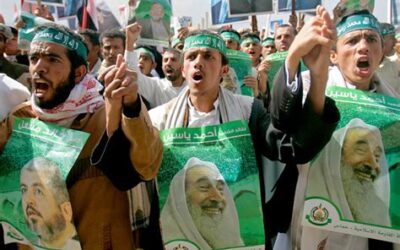
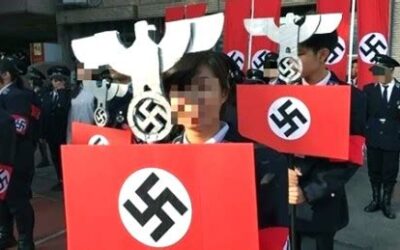
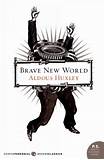
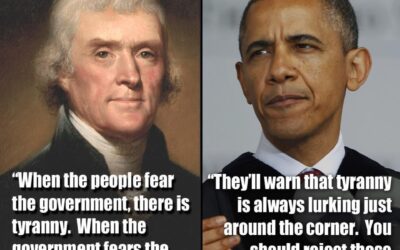


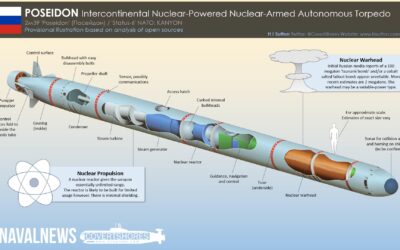

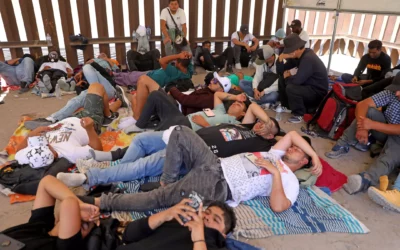
0 Comments